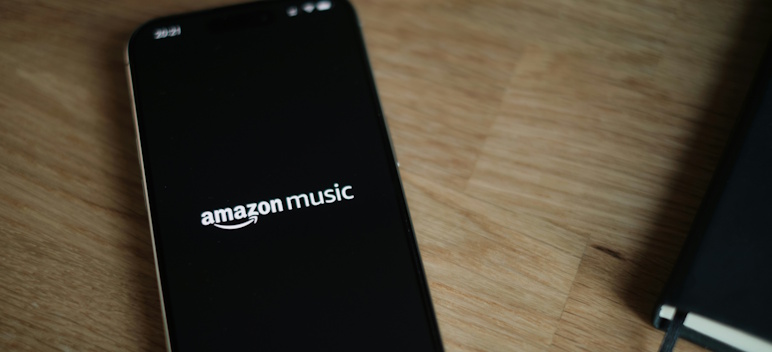Amazon Music goes “artist-centric”, but for which artists?
Image credit: appshunter.io
A new deal between Universal Music Group and Amazon Music promises to benefit artists, but does that just mean more major label privileges?
Amazon Music have revealed a new deal with the world’s largest record label, Universal Music Group (UMG). They say that their combined efforts will mark “a new era in streaming”, what UMG CEO Lucian Grainge is calling “Streaming 2.0“.
The question is, are UMG really pushing new “artist-centric principles” or simply benefiting their artists in an industry that increasingly favours independents over major label control? In 2024, global paid streaming revenues grew 12.9% but UMG only saw 6.5% in subscription streaming growth. In the same year, Spotify revealed that 26% of their streams were for independent artists.
So, is UMG’s deal actually an attempt to reshape the service using their large influence as their relevance slips? Last year, Spotify made the controversial decision to pay out for songs only once they had generated 1,000 streams. Following UMG’s heavy involvement with Deezer on their “artist-centric” model, it’s highly possible that they were involved in Spotify’s discussions over the decision.
Why would the 1,000 stream limit benefit UMG? UMG represents major artists, earning millions of streams with their huge marketing influence and visibility. Independent artists with smaller followings are much more likely to be gaining 1,000 streams or less.
This means that Spotify’s revenue pot is made smaller by all the payments to independent artists. By making a limit of 1,000 streams before artists receive their revenues, artists with higher streams gain a larger percentage. That means major label artists benefit.
So, there are concerns that UMG and Amazon have discussed a similar approach to reshaping their revenue model. Whilst full details of UMG and Amazon Music’s deal hasn’t been revealed, Grainge has emphasised his appreciation for “Amazon Music’s deep commitment to the interests of our artists.”
Grainge continues that he looks forward to “progressing our shared artist-centric objectives through product innovation and accelerating growth of their service.” Amazon VP of audio, Steve Boom added: “We’re redefining what it means to a be a streaming service.”
The deal will reportedly feature exclusive content from UMG artists. This will likely take the shape of superfan content, which Grainge is betting on advancing the next era of artist-fan connections. They’ve simply revealed that the exclusive content will both “enrich” the fan experience and “benefit artists”.
Beyond this, they have announced that together they will aim to tackle “unlawful AI-generated content” and “fraud and misattribution” on a deeper level. This is good news, but the concerns of independent artists can’t be allayed whilst their major label deal is still mostly unknown.
In November, Amazon Music revealed that they would begin bundling audiobooks in their music streaming service. This follows Spotify’s move to do the same, resulting in a lower royalty rate for music that they remain in conflict with the MLC over. At least with Amazon, they have negoitated their bundle rates in advance with NMPA CEO David Israelite saying their approach was “respectful and productive”.
Nonetheless, as music streaming grows and independent artists continue to gain influence, major label influence and streaming platforms’ profit-driven necessity continue to raise potential threats to the livelihood of smaller artists. Hopefully, as the industry evolves we can shape the models to work for everyone as streaming and digital music platforms have already helped to elevate independents like never before.
Independent artists from all over the world can benefit from free, unlimited music distribution to the world’s major streaming services. That includes Spotify, Amazon Music, Deezer, Apple Music, TIDAL, TikTok, Instagram Reels, YouTube, and many more.
Sign up for free music distribution at www.routenote.com today.
